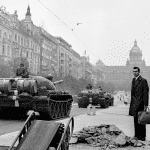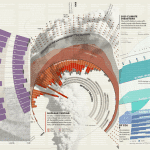Chemical weapons inspectors still delayed in Syria
By John Mecklin | April 18, 2018

The difficulty of enforcing the Chemical Weapons Convention in a war zone was made eminently clear this week as inspectors from the international group responsible for monitoring chemical weapons arrived in Syria—but did not make it to the town where, Syrian resistance and Western sources contend, the Syrian government recently used chemical weapons.
CBS News reported from Damascus early Wednesday that an advance UN security team “came under small arms fire and an explosive was detonated” at one of the two sites the team visited on Tuesday in the suburb of Douma. The two sites are now apparently under the control of Russian military police, CBS reported. In a memo to the executive council of the Organization for the Prohibition of Chemical Weapons, OPCW Director-General Ahmet Uzumcu wrote, “At present, we do not know when the [inspection] team can be deployed to Douma… This incident again highlights the highly volatile environment in which the [team] is having to work and the security risks our staff are facing.”
The OPCW inspectors are in Damascus to investigate whether Syrian forces used chemical weapons in attacks on April 7 that killed at least 40 people in Douma. Before the inspectors arrived in Syria on Saturday, however, US, British, and French ships fired more than 100 missiles at three Syrian facilities supposedly involved in research, development, and production of chemical weapons.
So far, Syrian officials and their Russian allies have claimed that the most recent alleged use of chemical weapons was staged and part of a “Russophobic effort” by the United Kingdom—a claim that a UK diplomat called “bizarre” and a “blatant lie,” according to a thorough BBC News account of the Douma attacks. It’s an account that spells out the seemingly voluminous evidence of chemical weapons use and that makes, at the very least, a haunting case for quick OPCW access to Douma.
Publication Name: BBC News
To read what we're reading, click here
Together, we make the world safer.
The Bulletin elevates expert voices above the noise. But as an independent nonprofit organization, our operations depend on the support of readers like you. Help us continue to deliver quality journalism that holds leaders accountable. Your support of our work at any level is important. In return, we promise our coverage will be understandable, influential, vigilant, solution-oriented, and fair-minded. Together we can make a difference.
Topics: What We’re Reading















